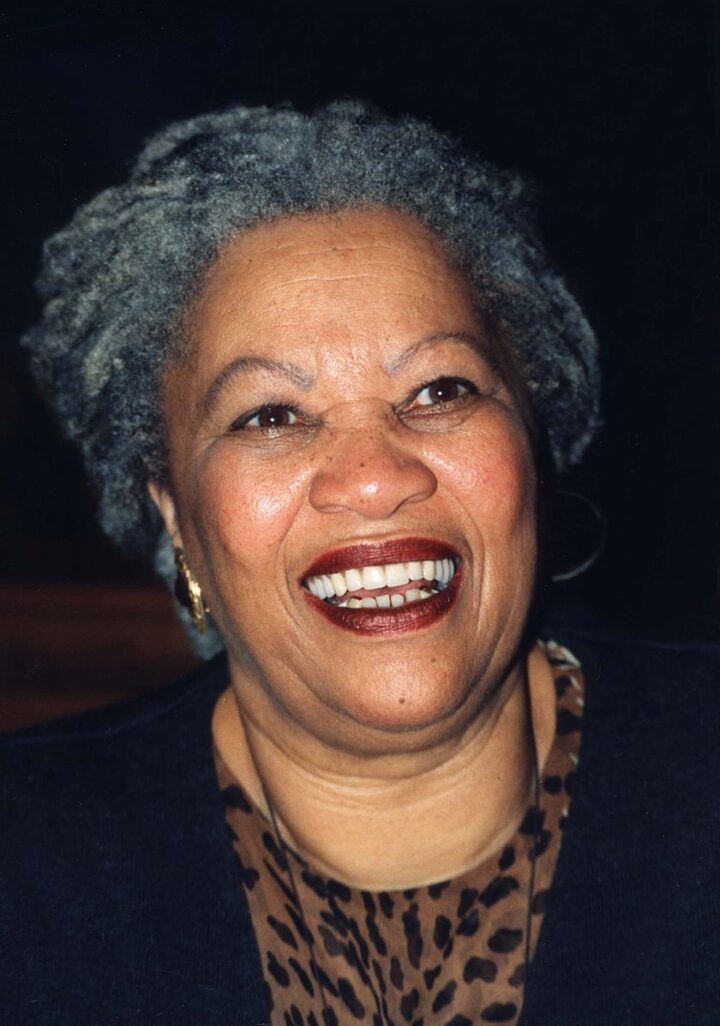
To say that Toni Morrison has become a legend in her own time is to massively understate the facts. Morrison, who turns 85 today, has won the Pulitzer Prize for Fiction, the National Book Critics Circle Award and the American Book Award, and she is the first (and, so far, the only) African American to be honored with a Nobel Prize in Literature. In addition to her storied creative achievements, she was also an accomplished editor at what is now Penguin Random House, where she was praised for discovering and championing black writers; she is a professor emeritus at Princeton University; and she was awarded the Presidential Medal of Freedom in 2012.
I first encountered Morrison through one of her most celebrated masterpieces, the Pulitzer-winning 1987 novel Beloved, in a college class on contemporary American literature. Beloved is the story of Sethe, a former escaped slave living in Ohio some years after the Civil War, who is haunted by a living ghost of her murdered child—the girl she killed rather than see her returned to slavery. Morrison had been a mystery to me, but reading this novel proved to be a revelation. I found myself in the unfamiliar, slightly uncomfortable place of not really knowing where I was in the book.
Morrison’s language is rich, beautiful and thought-provoking, but finding an initial foothold into Beloved was a tenuous process. Obviously this was purposeful on the author’s part, as she built a careful construction that places deep and impactful characters in the midst of pain and horror that slowly become apparent and grip the reader in their terrible thrall. But at the time, the only thing driving the greater appreciation and awe I discovered for the novel, and for Morrison, was that I had a grade riding on finishing the book and writing a paper that demonstrated my comprehension.
Reading Morrison marked one of the first experiences I’d had with the kind of complex, evocative writing that illumines the human experience with great subtlety. The gray areas of life are so deeply imagined in her work that making petty judgments of her characters’ choices and situations is nearly impossible. Morrison fearlessly plumbs the depths of the African American experience and particularly examines the lives of black women, both in themselves and in relation to their children (especially to their daughters). She places these women and their voices in the forefront of their own lives and history, highlighting their beauty, strength and frightening sacrifices as the driving forces in the survival of African American families and communities.
In contemplating the stature Morrison has attained, I’m struck by the way that greatness announces itself, whether it is lauded or not. By the time I read Belovedfor my English class, Morrison was already almost as accomplished as she would ever be, having been awarded everything but the Presidential Medal of Freedom. A cursory internet search would have prepared me for the gravity and the elusive nature of her writing (this novel’s in particular), but I love it when the first thoughts on an artist’s work can be free and clear from the allusions of her biographies or the slant of her politics. Even fresh out of high school and without an accompanying list of Morrison’s accolades, I could see that Beloved exudes the power and resonance of the most enduring classics, as indeed I now know many of her books do. It examines the roots of the problematic past in a way that encompasses the connections and repercussions that align the present and our future.
As its high-profile movie adaptation featuring the talents of Jonathan Demme, Oprah Winfrey and Danny Glover testifies, Beloved is Morrison’s most popular book. But among her 11 novels are many lesser-known gems that have developed her familiar themes: the powerful and often dysfunctional relationship between mother and child, the psychological effects of slavery on the black community (past and present), and the complex lives of black women. Check out the following greatest hits.
The Bluest Eye (1970)
Morrison debuted with the tragic story of Pecola Breedlove, a young black girl who longs to be beautiful—which to her means having blond hair and blue eyes.
Sula (1973)
The ups and downs of female friendship are the focus when a pair of childhood pals meet again as adults and find themselves the opposite of each other in every way.
God Help the Child (2015)
Morrison’s latest novel explores the power of a mother’s love and the deadly consequences that derive from the absence of a maternal bond.



